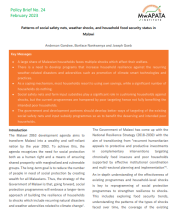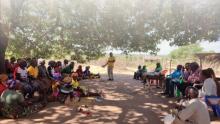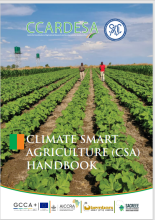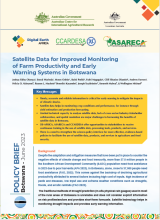Current agricultural practices in Mozambique and Lesotho lead to localized externalities and systematic “macro” erosion. However, conservation agriculture, which promotes minimal tillage, intercropping, and maintaining a soil cover, can be applied to moderate erosion and improve food security while sequestering carbon. This presentation examines the greenhouse gas reduction potential Sustainable Agriculture and Natural Resource Management (SANREM) Collaborative Research Support Program’s 5 year project to promote conservation agriculture in Mozambique and Lesotho. It provides graphical comparisons of carbon emissions for tillage and no-tillage systems. Results of a household survey in Mozambique are utilized to examine the probability of the adoption of conservation agriculture related to input use, training, labor constraints, and project support. Farmers who use fertilizer and herbicide and receive credit were found to have the highest adoption rate for conservation agriculture.
























































